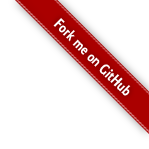POJ-2785
The SUM problem can be formulated as follows: given four lists A, B, C, D of integer values, compute how many quadruplet (a, b, c, d ) ∈ A x B x C x D are such that a + b + c + d = 0 . In the following, we assume that all lists have the same size n .
Input
The first line of the input file contains the size of the lists n (this value can be as large as 4000). We then have n lines containing four integer values (with absolute value as large as 2 28 ) that belong respectively to A, B, C and D .
Output
For each input file, your program has to write the number quadruplets whose sum is zero.
Sample Input
6 -45 22 42 -16 -41 -27 56 30 -36 53 -37 77 -36 30 -75 -46 26 -38 -10 62 -32 -54 -6 45
Sample Output
5
Hint
Sample Explanation: Indeed, the sum of the five following quadruplets is zero: (-45, -27, 42, 30), (26, 30, -10, -46), (-32, 22, 56, -46),(-32, 30, -75, 77), (-32, -54, 56, 30).
题意:就是给你4组数,然后让你在每组数里面找一个数,使其4个数和为零。问你有多少组。
题解:可以没两组数相加,和成两个数组,对其中一个数组排序。遍历两个数组(二分法,否则会TE),找相加为零的有多少组。
AC代码为:

1 #include <cstdio> 2 #include <iostream> 3 #include <cstring> 4 #include <algorithm> 5 using namespace std; 6 7 8 int sum1[16000005], sum2[16000005]; 9 10 11 int main() 12 { 13 int n, mid; 14 15 scanf("%d", &n); 16 17 int a[n][4]; 18 for (int i = 0; i<n; i++) 19 { 20 scanf("%d%d%d%d", &a[i][0], &a[i][1], &a[i][2], &a[i][3]); 21 } 22 23 int k = 0; 24 int m = 0; 25 for (int i = 0; i<n; i++) 26 for (int j = 0; j<n; j++) 27 { 28 sum1[k++] = a[i][0] + a[j][1]; 29 sum2[m++] = a[i][2] + a[j][3]; 30 } 31 32 sort(sum2, sum2 + m); 33 int cnt = 0; 34 35 for (int i = 0; i<k; i++) 36 { 37 int left = 0; 38 int right = k - 1; 39 40 while (left <= right) 41 { 42 mid = (left + right) / 2; 43 if (sum1[i] + sum2[mid] == 0) 44 { 45 cnt++; 46 for (int j = mid + 1; j<k; j++) 47 { 48 if (sum1[i] + sum2[j] != 0) 49 break; 50 else 51 cnt++; 52 } 53 for (int j = mid - 1; j >= 0; j--) 54 { 55 if (sum1[i] + sum2[j] != 0) 56 break; 57 else 58 cnt++; 59 } 60 break; 61 } 62 63 if (sum1[i] + sum2[mid]<0) 64 left = mid + 1; 65 else 66 right = mid - 1; 67 } 68 } 69 cout<<cnt<<endl; 70 71 return 0; 72 }




